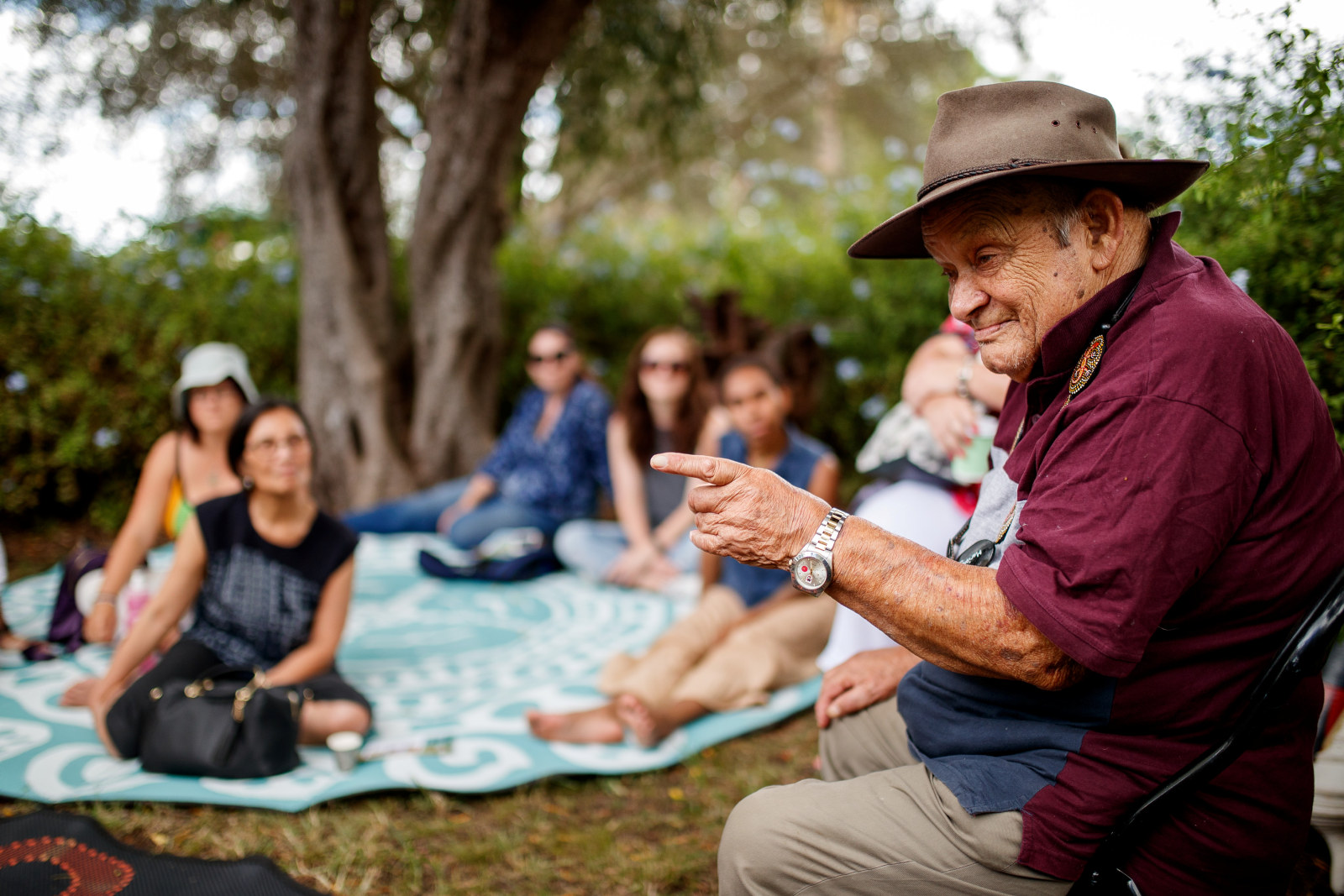Massacre at Appin, 17 April 1816
Two hundred years ago, under orders from Governor Macquarie, Captain WBG Schaw, Captain James Wallis and Lieutenant Charles Dawe of the 46th Regiment led expeditions against ‘hostile natives’ in the Nepean, Hawkesbury and Grose valleys and the Liverpool district.
On the early morning of 17 April 1816 at least 14 people of the Dharawal tribe were killed when James Wallis’ detachment encountered a camp at Appin near the banks of the Cataract River.
In our collection are the instructions from Governor Macquarie to Schaw, Wallis and Dawe regarding the punitive expedition, along with a copy of Captain Wallis’s journal which he kept during the expedition. We also have a copy of the report by Governor Macquarie to the Secretary of State Lord Bathurst (SRNSW: NRS 4518 [4/10583, pp74-77]).
These documents are part of the Colonial Secretary’s Papers, 1788-1825 - an extensive name and subject index - and you can check entries for the names of those involved, including:
- James Wallis
- WBG Schaw
- Charles Dawe
- John Warby
- Lieutenant AG Parker
You will also find entries under the heading Aborigines.
Related information
- Audio: Life Matters program (on ABC Radio National) about the Appin massacre, 1816 of a group of Aboriginal people - the Dharawal people - at Appin, 17 April 1816
- Campbelltown Art Centre exhibition, commissioned Aboriginal and First Nations Canadian artists, marks the 200th Anniversary
Diary of James Wallis
The attached digitised document is from the diary of James Wallis [4/1735 pp55] and we have included a transcript below.
The complete digitisation is available in the State Archives catalogue. See pages 55-57.
Related
More
Published on
First Nations stories
Browse all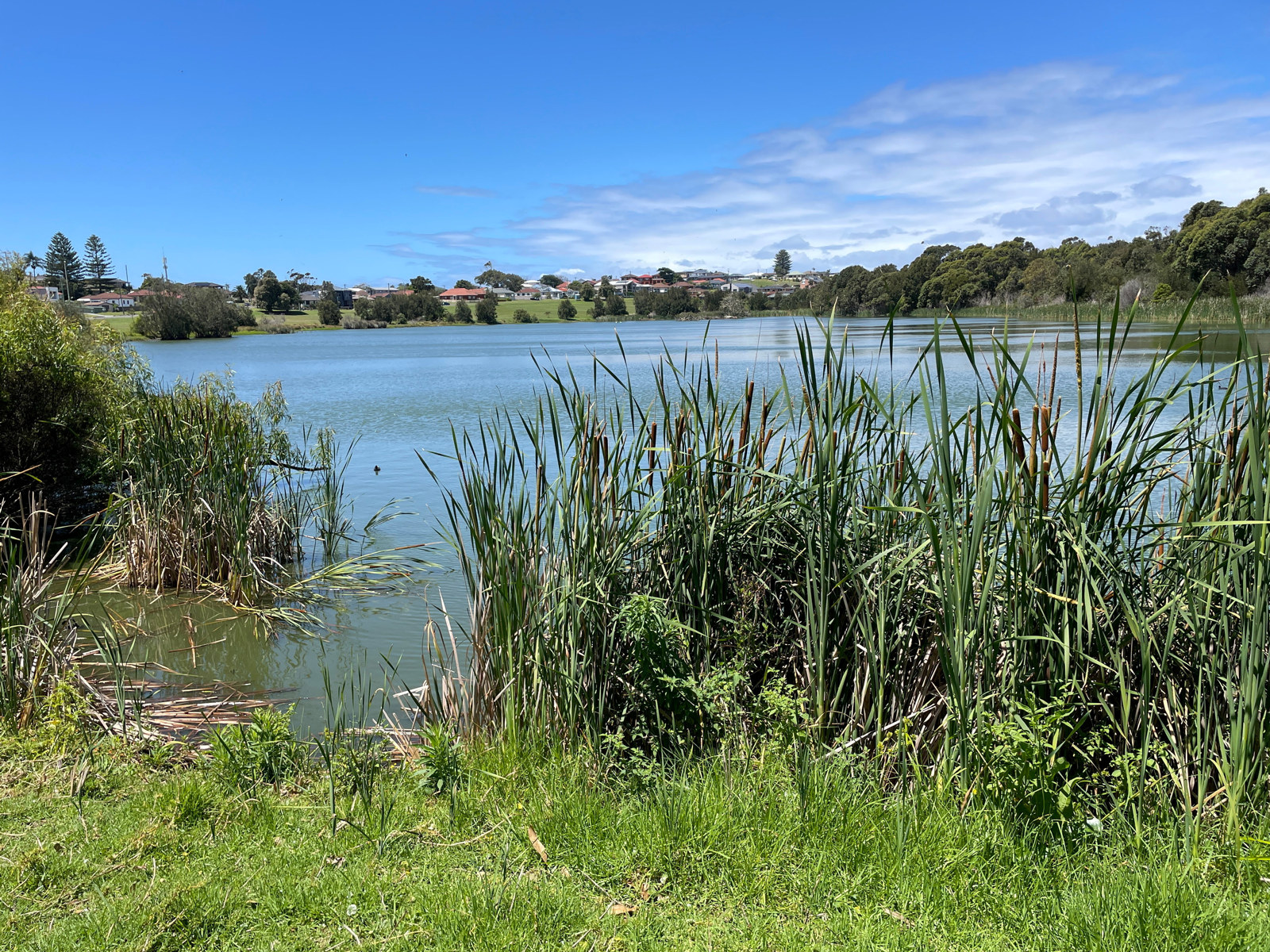
First Nations
Coomaditchie: The Art of Place
The works of the Coomaditchie artists speak of life in and around the settlement of Coomaditchie, its history, ecology and local Dreaming stories
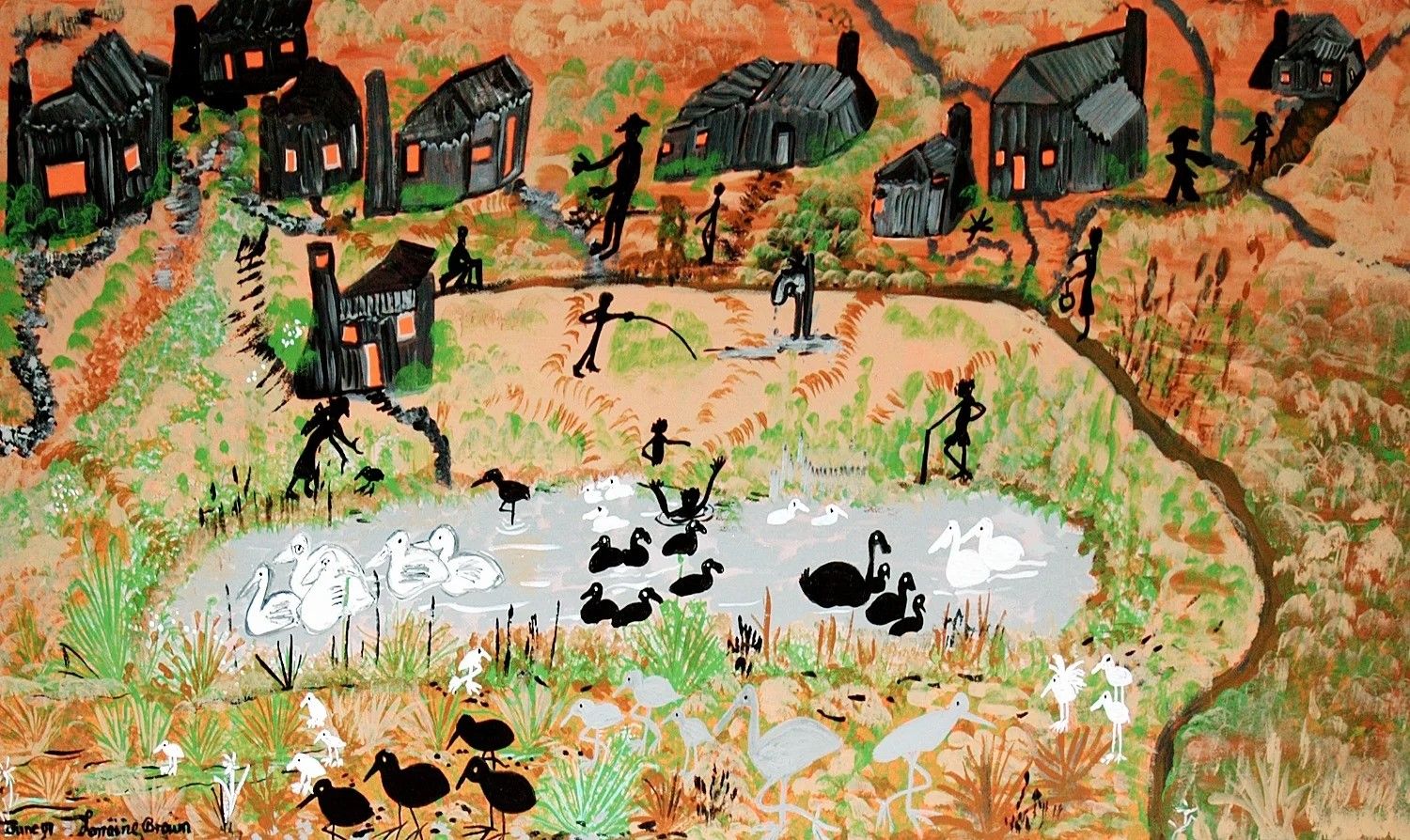
First Nations
Coomaditchie: Of place
These works record the extraordinary arc the artists of Coomaditchie have travelled over more than three decades
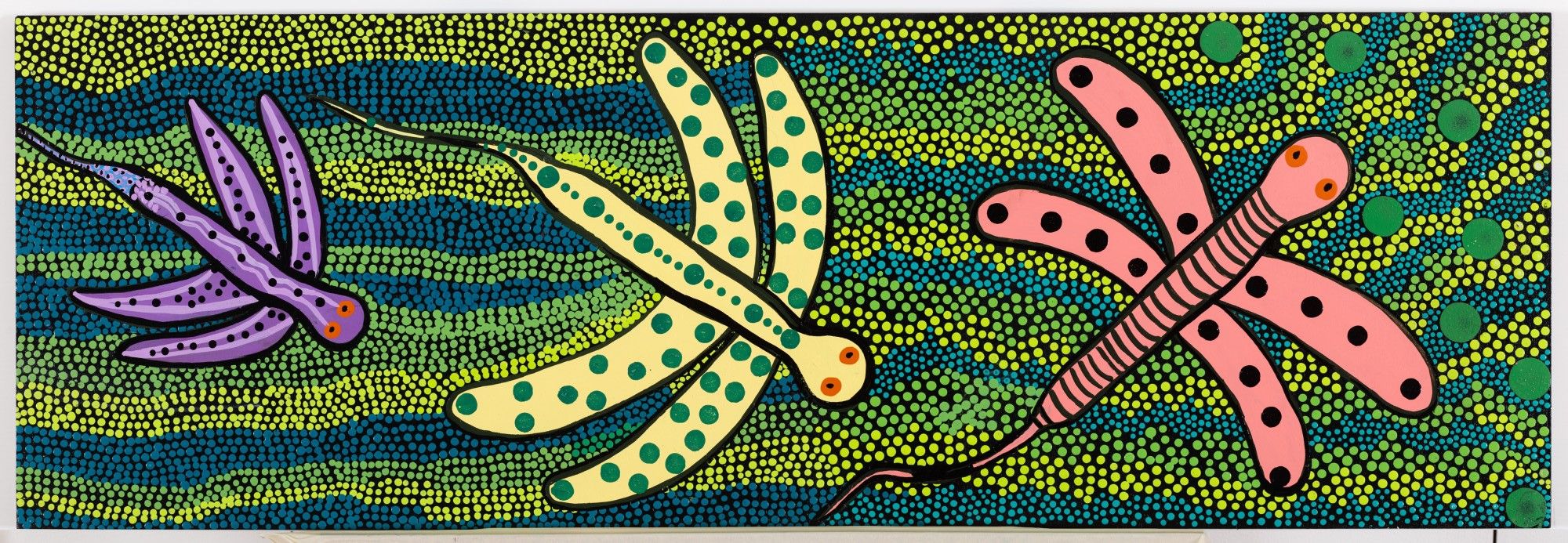
First Nations
Coomaditchie: Lagoon stories
These panels detail the ecological life in and around Coomaditchie Lagoon
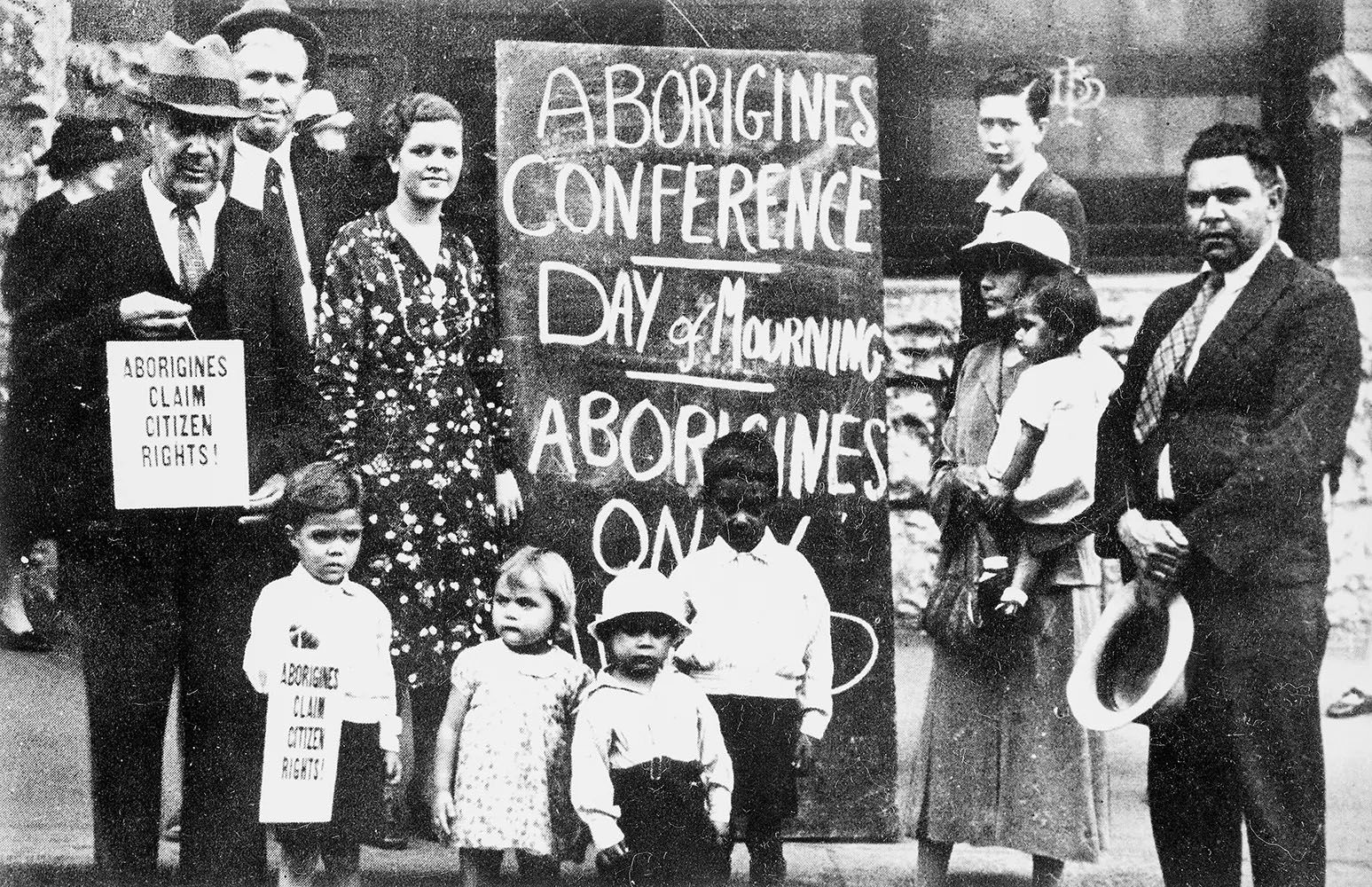
First Nations
Day of Mourning
January 26 has long been a day of debate and civic action. Those who celebrate may be surprised of the date’s significance in NSW as a protest to the celebrations of the anniversary of the arrival of the First Fleet on what was then “Anniversary Day” in NSW
